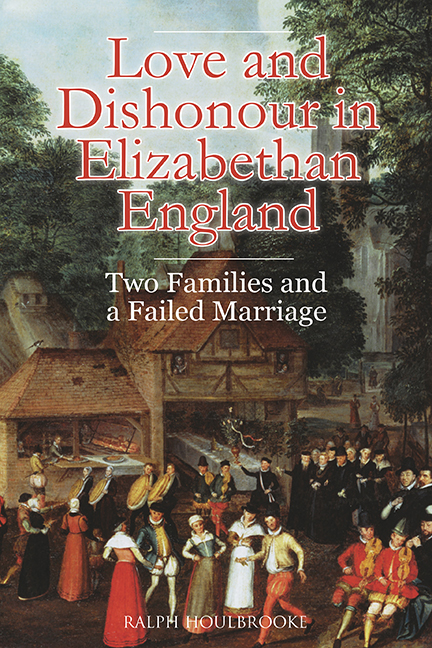Book contents
Preface and Acknowledgements
Published online by Cambridge University Press: 13 July 2019
Summary
It was a beautiful day, 5 September 1979, hot and sunny after an early mist, when I first discovered in the old Public Record Office in Chancery Lane, on a tightly rolled vellum strip, the depositions in the case of Forth v. Forth and Jerningham. The unrolled document was just over five metres long. I found the testimony given by several witnesses concerning the failure of an Elizabethan marriage poignantly sad but thoroughly absorbing. I returned to the roll the following day, and spent most of the morning preparing an abstract of the testimony. Diarmaid MacCulloch happened to be there. I mentioned my find to him. Of course he knew that case already. For him, the religious tension he saw at its heart was its most interesting aspect. A reference to it appears on p. 245 of his Suffolk and the Tudors: Politics and Religion in an English County 1500–1600 (Oxford, 1986), where a footnote directs the reader to a very brief account in his thesis. Like so many other researchers into the history of sixteenth-century East Anglia, I have been heavily indebted to the detailed yet panoramic view of Suffolk's history presented in his monograph.
For all its intrinsic fascination, the case proved awkward to fit into the project I was working on at the time. I resolved to return to it in retirement. Since 1986 it has not been entirely neglected. Professor Tim Stretton came across it in the course of his research on the Court of Requests, and mentioned it briefly in his Women Waging Law in Elizabethan England (Cambridge, 1998). In his edition of records of Marital Litigation in the Court of Requests 1542–1642 (Camden 5th series, 32, 2008), Professor Stretton included in an appendix a long, though not complete, list of entries in the books of the court, as well as of documents from the court's archive concerned with what were clearly two cases arising out of the same dispute rather than one. He did not however include any of this material in his edited collection. My intermittent epistolary acquaintance with Tim Stretton goes back to the 1990s, though I met him for the first time only in 2016. It was hugely kind of him to send me his own notes on the case when my work was already well advanced.
- Type
- Chapter
- Information
- Love and Dishonour in Elizabethan EnglandTwo Families and a Failed Marriage, pp. ix - xiPublisher: Boydell & BrewerPrint publication year: 2018



